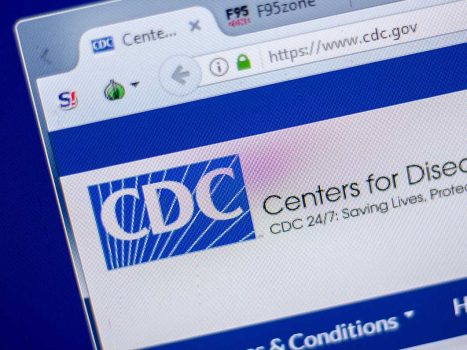At OnionBusiness.com, we recognize that food safety is of paramount importance for consumers and the food industry alike. However, we are increasingly concerned about the premature associations made between foodborne illness outbreaks and specific agricultural products, such as onions. The FDA’s ongoing investigations, which are managed by the Coordinated Outbreak Response and Evaluation (CORE) Network, serve as a critical tool for identifying and mitigating foodborne risks. Yet, we must approach these investigations with caution, transparency, and a commitment to accuracy—especially when assumptions can inadvertently harm entire sectors of the agricultural industry.
Recently, the FDA announced its reorganization plans starting October 1, 2024, which may impact the way the agency handles outbreak investigations. While this restructuring aims to streamline processes and improve efficiency, the details of how these changes will unfold remain to be seen. The FDA lists outbreak investigations in various stages, making it clear that some are in their infancy, while others are near completion. Yet, the publication of preliminary information often leads to unwarranted speculation about the source of an outbreak.
For instance, as of October 29, 2024, the FDA has linked processed slivered onions to a recent outbreak of E. coli O157 (ref #1270). Although slivered onions from Taylor Farms’ Colorado Springs facility were identified as a “potential” source, the investigation is far from conclusive. And yet, the damage to the onion industry could be lasting. Historically, preliminary reports and assumptions about foodborne illnesses have needlessly impacted onion growers and the broader supply chain, even when conclusive evidence failed to link onions as the primary cause. This echoes past incidents where speculation led to widespread misinformation and market challenges.
Moreover, the FDA’s active investigation list indicates that there are 11 ongoing outbreaks, only one of which—Shruumz Brand Products—has been definitively linked to a specific product. Even in this case, with 175 reported illnesses, 70 hospitalizations, and three potentially associated deaths across 33 states, the FDA has yet to identify the exact pathogen responsible, although speculation hints at synthetic psychedelic substances. Nonetheless, the FDA has taken a firm stance by naming a product category in this investigation. Yet for other outbreaks, particularly those involving products with multiple ingredients or those subject to third-party processing, identifying a single source proves complex and, at times, controversial.
Then in an October 30, 2024 Update provided by the Center of Disease Control, it was reported that traceback data point to fresh, slivered onions served at McDonald’s as the “likely” source of an E. coli O157outbreak, but not definitively so. Taylor Farms’ Colorado Springs facility, which supplied these slivered onions, has initiated a recall of yellow onions sent to other food service operators. However, the investigation is still ongoing, and the findings are far from conclusive.
The CDC’s update included interview figures. Out of the 90 reported cases, approximately 76% of the affected individuals were interviewed. This percentage adds to the uncertainty. Moreover, the CDC’s mention of the approximate location of the grower, without specifying details, additionally opens the door to further speculation and conclusions that may unfairly impact onion growers and processors.
Historically, preliminary reports and assumptions about foodborne illnesses have led to lasting consequences for the onion industry, even when the final conclusions proved onions were not the primary cause.
One Northwest onion grower expressed his concern and frustration over the media’s tendency to imply all onions are suspect. He shared with OnionBusiness.com, “These things cost growers a lot of money waiting to hear the findings. There is always the misconception that the onions get delivered from a farmer off his truck to McDonald’s. This is not the same as being processed first by a whole different third-party entity.” He continued, “It seems like onions are getting a bad rap with E. coli in the past five years. Remember reds during Covid? But we move forward.”
When the onion industry is implicated—whether directly or indirectly—by preliminary findings, the repercussions are often felt long before the facts are fully known. This underscores the need for federal agencies like the FDA to exercise greater caution and provide more nuanced public advisories. The rush to identify a potential source without conclusive evidence can damage reputations and undermine consumer confidence. Meanwhile, as investigations continue, onions and other products remain under scrutiny despite having undergone extensive processing and rigorous safety measures.
At OnionBusiness.com, we advocate for responsible reporting and investigation practices that reflect the complexities of the supply chain. Onions do not go directly from a farmer’s truck to consumers; they pass through processing facilities and distribution channels, adding layers of potential risk that must be understood and communicated accurately. The onion industry works diligently to ensure our products are safe, healthy, and nutritious. It is crucial that federal agencies and the media accurately portray these efforts, especially during ongoing investigations.
We urge our readers to stay informed and actively engage in discussions about how federal agencies like the FDA and the CDC manage outbreak investigations. By voicing your concerns, you can help ensure our industry remains strong and resilient. Your involvement helps maintain public trust and reassures consumers that onions grown in the United States are produced with the highest standards of safety and quality.
Let’s keep our industry healthy and thriving by encouraging responsible investigation practices and standing united as advocates for the onion community. Together, we can build a stronger, safer future for everyone.
Below we provide you with recent interviews that National Onion Association’s Greg Yielding granted Colorado television news outlets.



